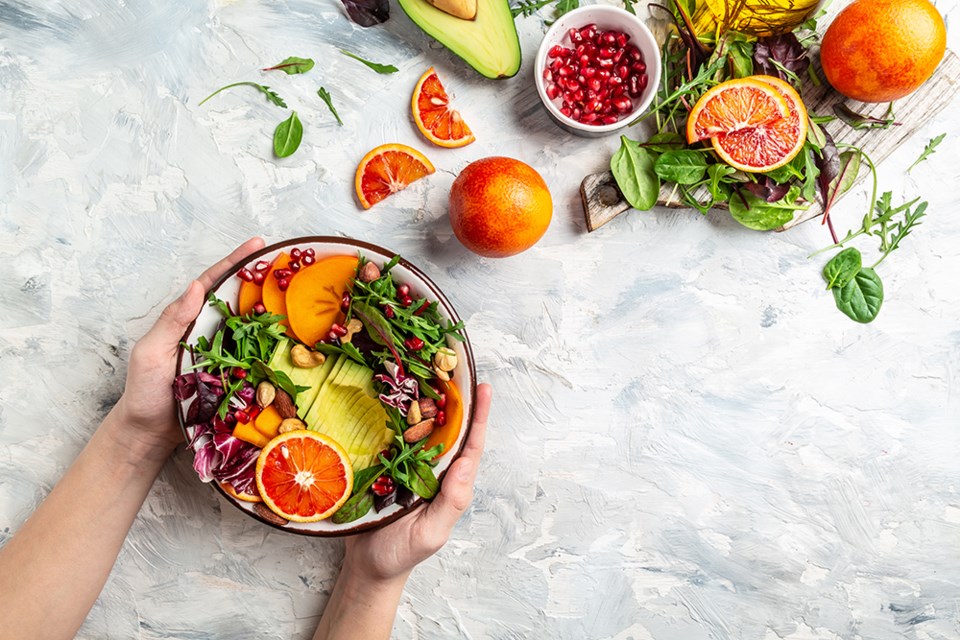When you hear the word “vegan,” what comes to mind?
Many people immediately imagine bushels of kale, daily yoga, stocking up on bulk grains and legumes, or any number of other health-promoting foods and practices. But at its core, veganism isn’t about health at all. It’s a practice aimed at minimizing harm to and the commodification of animals.
That said, a well-planned vegan diet can be rich in micronutrients, antioxidants and fibre, while being lower in saturated fats and pro-inflammatory compounds compared to omnivorous diets. The key term here is “well-planned.” Keep in mind you could technically be vegan and eat nothing but chips and Oreos.
Authors of a 2023 randomized controlled twin study, popularized in the 2024 documentary You Are What You Eat, concluded that “those consuming a healthy vegan diet showed significantly improved low-density lipoprotein cholesterol concentration, fasting insulin level and weight loss compared with twins consuming a healthy omnivorous diet.”
So, if you’re looking to align your actions with your values and boost your health, here are four things to keep in mind as you move toward plant-based eating:
Mindset is key
Try to foster a mindset of abundance, filling your plate with as many delicious plant-based foods as possible, instead of harbouring a mindset of avoidance, fixating on all the animal products you’re aiming to replace.
If you’re new to vegan eating, don’t just eliminate animal products (which would set you up for nutritional deficiencies). Replace them with nutrient-dense plant-based foods.
Experiment with new ingredients
Embrace the opportunity to explore a wide variety of fruits, vegetables, grains, legumes, nuts and seeds. Experimenting with new ingredients and recipes will keep your meals interesting, reducing the temptation to revert to your previous eating habits. Before I went vegan, I had no idea what tempeh, wakame, farro, or amaranth were. Now they’re staples in my pantry.
Protein is easy to get
Everyone’s favourite vegan question: “So, where do you get your protein?” If you’re active, currently in a calorie deficit (for fat loss), and/or you have body composition goals, your protein needs increase. All it takes are a few go-to sources, and you’ll be set.
Did you know fava bean tofu is much higher in protein than animal-based meat? Or that you can get 24 grams of protein from one serving of chickpea pasta? Or that you can easily make your own seitan (a meat alternative first created by Buddhist monks centuries ago) that has the same protein content as a chicken breast?
Lifelong learning
I’ve been vegan for 21 years, and I’m still learning new things. Updated nutrition studies get published, new plant-based products come to market, and there are always new recipes to test out. You don’t need to go 100 per cent vegan right away (or ever). Any move toward a more plant-based diet, focusing mostly on whole foods, will benefit your health.
For more information, go to karinainkster.com
Join the Peak's email list for the top headlines right in your inbox Monday to Friday.

